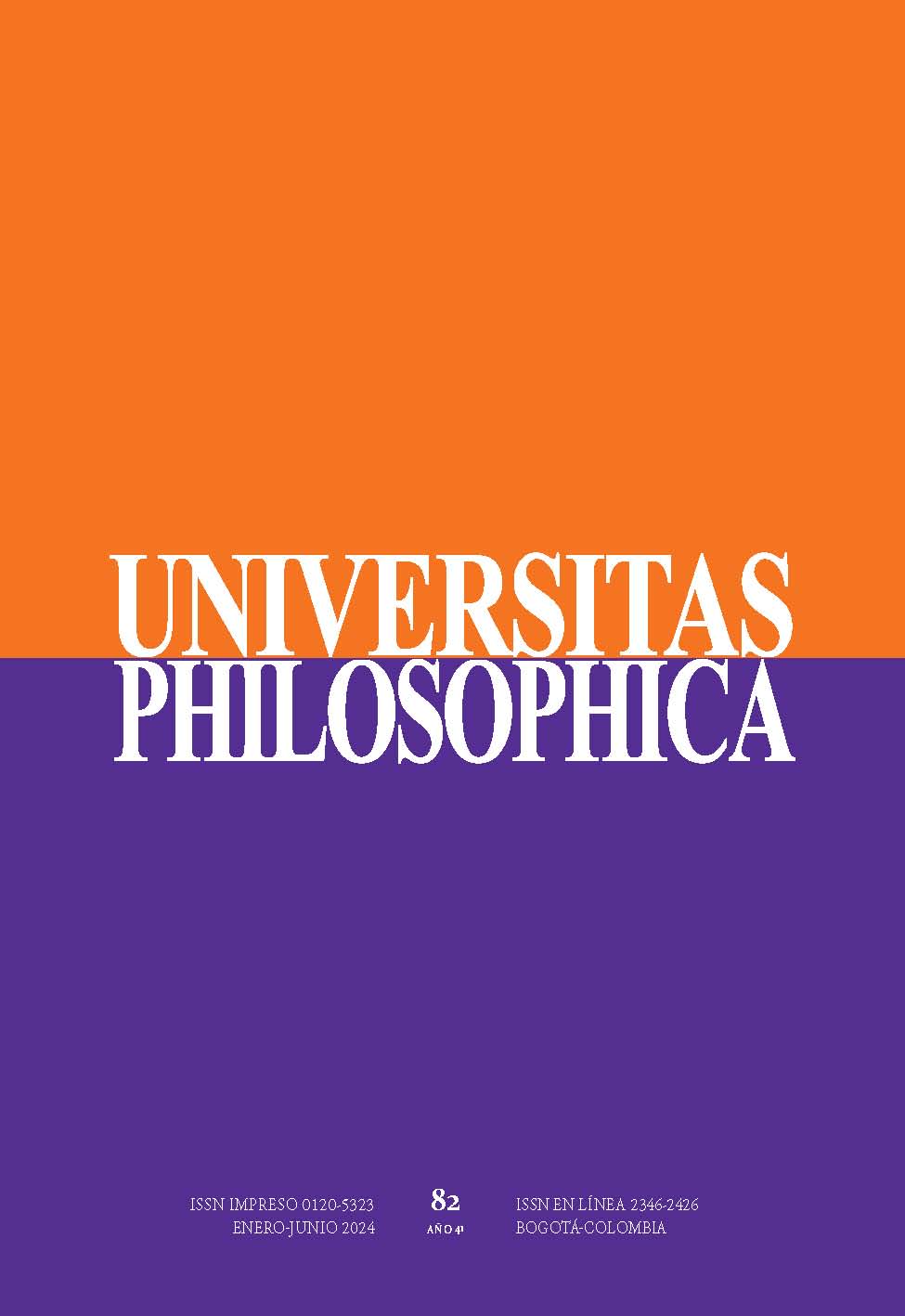Abstract
In this article we will take a detailed look at the ontological and categorical system of Georg Lukács’s posthumous work Ontology of Social Being. A comparison will be made between the problematic that arises between the first historical part and the second systematic part. The ontological systems of existentialism, Nicolai Hartmann, Hegel and Marx will be brought into play, ending with Lukács’s proposal of a fully social ontology. The categories of labour, social reproduction, ideology, and alienation, all of them determinants of social being, will also be approached.
Almási, M. (1989). Prólogo a la edición húngara. En G. Lukács, El hombre y la democracia (pp. 19-31). Editorial Contrapunto.
Ballestero, M. (2017). Introducción. Crítica y subversión de la continuidad. En G. Lukács, Falsa y autentica Ontología de Hegel (pp. 11-43). Bellaterra.
Benseler, F. (1986). Nachwort. En G. Lukács, Zur Ontologie des gesellschaftlichen Seins. II Halbband (pp. 731-748). Luchterhand.
Chasin, J. (2015). Marx. Ontología y método. Herramienta.
Dannemann, R. & Honneth, A. (Eds.). (2021). Georg Lukács Ästhetik, Marximus, Ontologie. Suhrkamp.
Dannemann, R. & Jung, W. (Eds.). (1995). Objektive Möglichkeit. Beiträge zu Georg Lukács` “Zur Ontologie des gesellschaftlichen Seins”. Verlag für Sozialwissenschaften.
Dannemann, R. (Ed). (1986). Georg Lukács. Jenseits der Polemiken. Beiträge zur Rekonstruktion seiner Philosophie. Sendler.
D’Hondt, J. (2002). Hegel. Tusquets Editores.
Eörsi, I. (1976). Egy Posztumusz Mü Története. En G. Lukács, A társadalmi lét ontológiájáról III (pp. 9-14). Magvető Könyvkiadó.
Fanon, F. (2009). Piel negra, máscaras blancas. Akal.
Hobbes, T. (2000). Tratado sobre el cuerpo. Trotta.
Holz, K., Kofler, L. & Abendroth, W. (1971). Conversaciones con Lukács. Alianza.
Infranca, A. (2013). Introducción. En G. Lukács, Ontología del ser social: La alienación (A. Infranca & M. Vedda, Eds.) (pp. 9-22). Herramienta.
Infranca, A., & Vedda, M. (Comps.). (2007). György Lukács. Ética, estética y ontología. Colihue.
Jung, W. (2007). Para una ontología de la vida cotidiana. La filosofía tardía de Georg Lukács. En A. Infranca y M. Vedda (Eds.), György Lukács. Ética, estética y ontología (pp. 85-102). Colihue.
Lukács, G. (1966). Estética I. Grijalbo.
Lukács, G. (1984). Zur Ontologie des gesellschaftlichen Seins. I Halbband. Luchterhand.
Lukács, G. (1986). Zur Ontologie des gesellschaftlichen Seins. II Halbband. Luchterhand.
Lukács, G. (1989). El hombre y la democracia. Editorial Contrapunto.
Lukács, G. (1990). Prolegomeni all'ontologia dell'essere sociale. Edizioni Angelo Guerini e Associati.
Lukács, G. (2015). Notas para uma ética / Versuche zu einer Ethik: edição bilíngüe (S. Lessa, Trad.). Instituto Lukács.
Markus, G. (1986). Entfremdung und Verdinglichung bei Marx und Lukács. En R. Dannemann (Ed.), Georg Lukács. Jenseits der Polemiken. Beiträge zur Rekonstruktion seiner Philosophie (pp.71-104). Sendler.
Marx, K. (2017). El capital. Siglo XXI.
Tertulian, N. (1990). Introduzione. En G. Lukács, Prolegomeni all'ontologia dell'essere sociale (pp. IX-XXVII). Edizioni Angelo Guerini e Associati.
Tertulian, N. (2006). Aliénation et désaliénation: une confrontation Lukács-Heidegger. Actuel Marx, 1(39), 29-53.
Tertulian, N. (2010). Posfácio. En Lukács, G., Prolegômenos para uma ontologia do ser social (pp. 381-400). Boitempo.
Traverso, E. (2021). Dialectic of Irrationalism. Historicizing Lukács’s The Destruction of Reason. En G.
Lukács, G., The Destruction of Reason (ix-lx). Verso Books.
Spinoza, B. (2011). Ética. Alianza.

This work is licensed under a Creative Commons Attribution 4.0 International License.
Copyright (c) 2024 Diego Fernando Correa Castañeda



